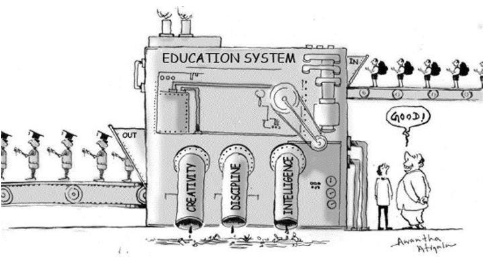For as long as I have been in school, I’ve always heard my teachers and peers say the same phrase , “Teachers don’t get paid enough,” or something along those lines with such emphasis. When I was younger, I didn’t really understand what they meant, nor did it really mean anything to me at the time; I was obviously a child , but I heard the phrase often enough that it not only stuck with me and remained in the back of my head dormant , but I was also determined to understand what they meant. I am a senior in high school now, and I continue to hear the same phrase at this point from almost every teacher I’ve had or encountered , and as I grow and mature and the more I learn , the more I am able to observe my own classroom environments and create my own evaluations and ideologies. As a full-time student, I believe I am qualified and can confidently say I fully understand what teachers mean now. They really don’t get paid enough for all the work they do in and outside of school. Not only are teachers underpaid for the amount of work they do, but they also don’t receive enough recognition for what they contribute towards society. There are two places children receive education and guidance the most: at school with teachers and at home with parents. Teachers spend half the day with children educating them, getting to know them, and making sure that at least every individual student has what they need to be successful in school for hours at a time, not to mention the emotional aspect of being a teacher; they see many students throughout their careers , each with their own individual struggles, stories, hardships, and achievements. Teachers are still human, and although their job is to educate and not intervene in anything else , they still notice, see, feel, and sense things in the classroom , whether they be positive or negative, and that is just a part of the job that also must be recognized. Teachers also have to do work outside of school hours. They create lesson plans, new materials for the class, and grade papers; attend teacher meetings; and manage extracurricular activities—all these things they do outside of the school hours. Teachers also, unfortunately, due to the rise in gun violence in schools, have to take special training classes in case an active shooting occurs during school. Imagine going into a job or profession knowing that is a risk you may face on the job, especially for teachers with families of their own. They do all this work just to not get taken seriously or even acknowledged when they speak up about concerning behavior going on in the classrooms with students. Teachers, aside from parents, spend a great amount of time with children in class, as mentioned, and over the years have spoken up about how there has been a great decline in education technology and poor parenting is negatively impacting our newer generations. I’ve seen this countless times over the years firsthand in my own personal classrooms and on social media with other teachers from all around the U.S. with their own stories and experiences. The school systems and parents are failing children; there’s only so much teachers can do , and our technology, although innovative and sometimes a useful tool to have in class, is hindering children’s learning ability. Teachers speak about how their students are incapable of reading, writing, and following simple classroom instructions without repetition and constant redirection. This is all very concerning to me because these kids, after all, are our future. But all of this is also yet again even more alarming because teachers, professionals in their field, are being completely ignored, so it makes me question what truly is the motive behind school. Is there anything being actively done to improve education systems? How can parents help ?
Categories:
Teachers and Failing Education Systems
The Silent Struggle of Teachers: Underpayment, Systemic Neglect, and the Crisis in Modern Education
Jayda Acosta, Staff Writer
May 8, 2025

0
More to Discover
About the Contributor





